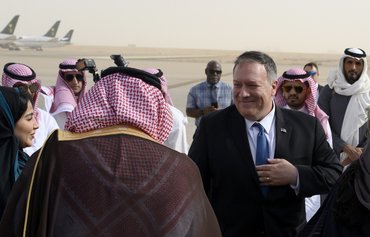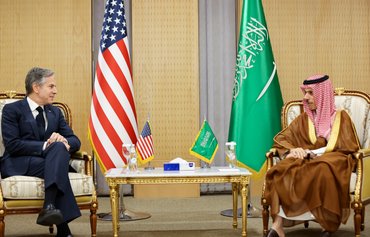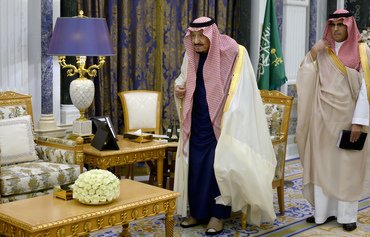Saudi Arabia's foreign minister on Monday (January 6th) appealed for calm after a "very dangerous" escalation following the killing of Islamic Revolutionary Guards Corps Quds Force (IRGC-QF) commander Qassem Soleimani.
Prince Faisal bin Farhan's appeal came as the US warned that Saudi Arabia faced a "heightened risk" of missile and drone attacks after Tehran vowed to avenge last week's US assassination of Soleimani in Baghdad.
"It is certainly a very dangerous moment," Prince Faisal told reporters in Riyadh.
"We hope that all actors take all the steps necessary to prevent any further escalation and provocation."
Prince Faisal spoke after a meeting of foreign ministers of Arab and African coastal states, including Egypt, Yemen and Djibouti, aimed at enhancing regional security, Saudi state media reported.
The killing of Soleimani, seen as the second most powerful man in Iran, is the most dramatic escalation yet in spiralling tensions between Washington and Tehran, prompting fears of a major conflict in the Middle East.
Saudi Arabia and the UAE, both US allies, are vulnerable to Iranian counter strikes.
A string of attacks on Gulf oil tankers last year that were blamed on Iran, despite its denials, has raised tensions.
Strikes against Saudi oil installations in September also led Riyadh and Abu Dhabi to adopt a more conciliatory approach aimed at avoiding confrontation with Tehran.
Measures to defuse tensions
Saudi King Salman emphasised the need for measures to defuse tensions in a phone call at the weekend with Iraqi President Barham Saleh.
Crown Prince Mohammed bin Salman has instructed Prince Khalid bin Salman, the deputy defence minister, to travel to Washington and London to urge restraint, the pan-Arab Asharq Al-Awsat newspaper reported this week.
Prince Khalid will meet White House and US defence officials, the paper said, citing unnamed sources.
The US embassy in Riyadh has warned its citizens that military bases and energy facilities, particularly in the kingdom's Eastern Province and areas near the Yemeni border, are vulnerable to missile and drone attacks.
Yemen's Iran-backed Houthis (Ansarallah), locked in a five-year conflict with the Saudi-led Arab coalition, also have called for swift reprisals for Soleimani's killing.

![Saudi Foreign Minister Prince Faisal bin Farhan attends the first plenary session of the G20 foreign ministers' meeting in Nagoya, Aichi prefecture in this file photo from November 23rd. [Charly Triballeau/AFP]](/cnmi_am/images/2020/01/06/21807-Saudi-foreign-minister-600_384.jpg)






